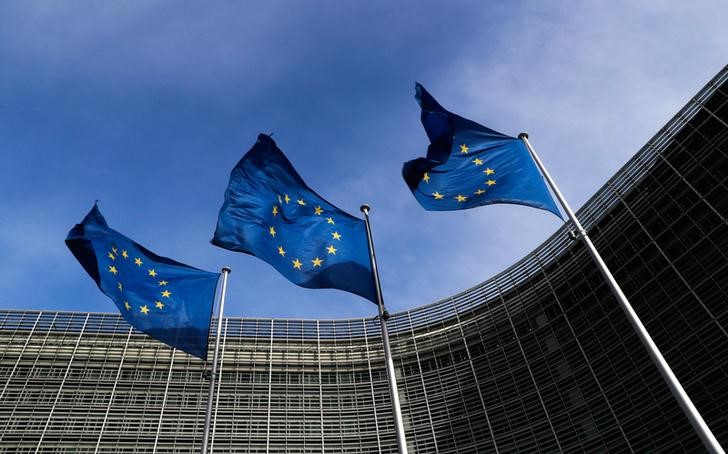(Bloomberg Opinion) -- European Union leaders have long called for the bloc to behave more independently and strengthen its international role. Their failure to build a way to bypass U.S. sanctions on Iran has brutally exposed how far they are from that goal.
In September, Federica Mogherini, the EU’s top foreign policy official, announced plans for a special-purpose vehicle to keep some trade with Iran flowing with Europe. The hope was to keep the 2015 Iran nuclear deal alive after it was abandoned by the Trump administration. U.S. sanctions, including a ban on most oil exports, kicked in on Nov. 5 – but the SPV is far from ready.
EU member states haven’t even been able to find a country willing to host it. Austria has already refused, and Luxembourg is now coming under pressure from Germany, France and the U.K – the three European signatories of the nuclear deal – to provide it with a home.
It’s immensely damaging that, rather than volunteering themselves, the big nations are trying to pass the buck to their less powerful neighbors. Their motivation is clear: the larger a country, the bigger the risk of angering President Donald Trump.
The stakes for Europe's financial system could not be higher diplomatically or financially. Little wonder these country's central banks are buckling. The Bundesbank quietly changed its rules recently to allow it to reject an Iranian request to withdraw 300 million euros ($340 million) from the Hamburg-based trade bank Europaeische-Iranische Handelsbank. The reason? To protect the central bank’s relationships with institutions in “third countries.” For that, read the U.S.
Few doubt Trump’s ability to punish allies if they cross him. And the benefits of the SPV are questionable. It will only be useful for small and medium-sized companies with no U.S. exposure. If it does only a small amount of business, there will be little incentive for Iran to continue accepting restrictions on its nuclear program.
Ever since Mogherini’s announcement, U.S. representatives have made the point that large firms are unlikely to use the SPV. But despite dismissing the measures as a “paper tiger,” the U.S. is clearly worried, if not about their impact on the Iranian economy, then about their ultimate effect on U.S. power in general and its policy on Iran in particular.
"They reflect a striking effort by the EU to seek to actively undermine U.S. sanctions, and by extension, U.S. policy," David Mortlock and Brian O’Toole, both former U.S. officials who worked on sanctions policy, wrote in a recent paper on U.S. sanctions strategy for the Atlantic Council. "Iran may face economic hardship as a result of the re-imposition of the sanctions, but it will not face the same level of diplomatic isolation this time."
Facilitating trade with Iran is one of the easier steps the EU could take to prove its sovereignty. Other measures, like a joint European military, would be unpopular and expensive. The necessary instruments for the EU to make a clear statement are there; applying them is just a matter of political will.
The EU blocking statute, updated in August to cover the U.S. sanctions on Iran, forbids European companies from complying with non-member countries’ extraterritorial restrictions, and allows them to claim compensation for any damages caused by such sanctions. If the EU’s strongest members somehow managed to set up the Iran SPV, they could offer assurances to businesses of all sizes that agree to work with the SPV that they would receive the maximum protection under the statue. That could also provide some protection to SWIFT, the global financial messaging system, and make it more reluctant to disconnect Iranian banks.
Robust joint action by the EU, or even just by Germany and France, would limit even Trump’s resolve to fight back against his European allies: it would challenge the president's promise to create jobs, since German and French multinationals employ a combined 1.4 million people in the U.S.
And yet, for all their big words about Europeans’ “taking their destiny in their own hands,” as German Chancellor Angela Merkel likes to repeat, EU leaders’ real policy appears to be to string Iran along while waiting for the Trump presidency to end. They are going through the motions, while holding off on any decisive action. No one wants to risk a Trump attack on Europe’s financial system or an intensification of the trade war, which would hit car exporters especially. But this is a head-in-the-sand tactic. It might be pragmatic, but it stands in stark rebuttal to their rhetoric on sovereignty.
